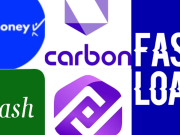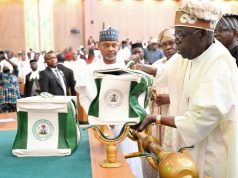In a decisive move signaling a post-oil economic future, Nigeria has officially approved the final investment decision for a $10 billion green hydrogen and ammonia production facility in Kano State—marking the country’s largest clean energy project to date and one of the most ambitious renewable ventures in Africa. The project, spearheaded by a strategic consortium comprising Dangote Industries Limited, Abu Dhabi’s Masdar, and Germany’s Siemens Energy, represents a fundamental reorientation of Nigeria’s energy and export strategy away from fossil fuels toward sustainable, high-value commodities.
According to an official statement issued by the Federal Ministry of Petroleum Resources on November 9, 2025, the facility will leverage Nigeria’s abundant solar and wind resources in the northern region to produce 1 million metric tons of green ammonia annually by 2029. Green ammonia—created by combining hydrogen extracted via electrolysis (powered by renewables) with nitrogen from the air—serves as a carbon-free fuel and a key energy carrier for hard-to-decarbonize sectors like shipping and heavy industry. The project has already secured long-term offtake agreements with European utilities and Japanese trading houses, including Mitsubishi Corporation and RWE.
Critically, the European Union has pre-qualified the initiative under its Carbon Border Adjustment Mechanism (CBAM), ensuring tariff-free access to Europe’s $300 billion clean hydrogen market. This not only guarantees revenue but positions Nigeria as a strategic clean energy partner in the EU’s REPowerEU plan to reduce reliance on Russian energy.
Beyond exports, the project carries profound domestic implications. It will integrate 500MW of solar and wind capacity into the national grid, helping stabilize power supply in northern Nigeria. It is also expected to create over 3,000 direct jobs during construction and operation, with an additional 10,000 indirect jobs in logistics, maintenance, and support services. Importantly, the facility will incorporate flared gas recovery technology from nearby oil fields during its transition phase, directly addressing one of Nigeria’s most persistent environmental challenges.
Aliko Dangote, Africa’s richest businessman and chairman of the consortium, stated: “This is not charity—it’s smart economics. The world is paying a premium for clean molecules, and Nigeria has sun, wind, and land. We’re turning our natural advantages into exportable energy.”
Energy analysts note that Nigeria’s entry into green hydrogen could catalyze similar projects across the Sahel, where renewable potential remains largely untapped. With global green hydrogen demand projected to grow 50-fold by 2050 (IEA), Nigeria’s early-mover status may prove transformative for its balance of payments and industrial policy.
Sources:
International Energy Agency (IEA) Hydrogen Outlook 2025
Federal Ministry of Petroleum Resources, Nigeria (Press Release, November 9, 2025)
Reuters: “Nigeria Approves Dangote-Led Green Hydrogen Export Facility” (November 9, 2025)
Bloomberg Green: “Africa’s Hydrogen Ambitions Take Shape in Northern Nigeria” (November 10, 2025)
Follow us on Instagram.
https://www.instagram.com/businessnewsng?igsh=ZXpweTdjOGF1ZXdu

























